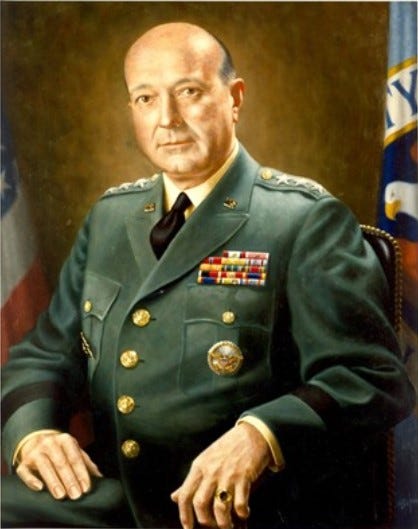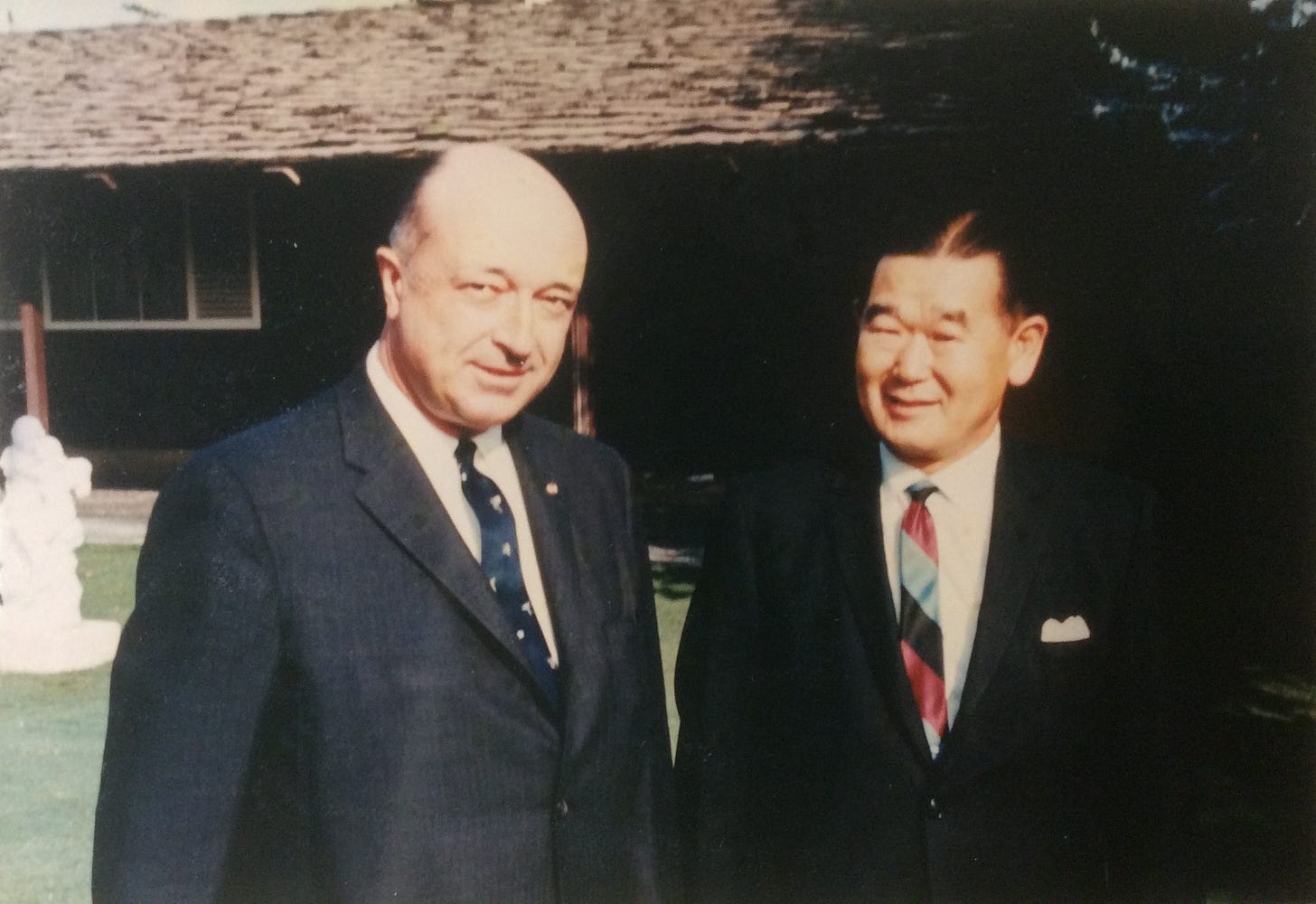Lieutenant General Marshall Carter
An Early Leader of the U.S. Intelligence Community and Friend of Peter Kim
Marshall Carter became a key leader in the intelligence community after the Second World War. A second-generation Army officer who went to West Point, graduating in the Class of 1931, Carter began his career in the Coast Artillery, the Army branch responsible for coast defense artillery and antiaircraft guns. He earned a master’s degree from the Massachusetts Institute of Technology and taught at West Point in the 1930s. After spending much of the Second World War on the War Department staff in Washington, he deployed to China in 1944 to serve as chief of staff of the theater command’s G-5 civil affairs section.
In early 1945 Colonel Carter became acquainted with Peter Kim, an enlisted man assigned to the G-5 staff. Recognizing Peter Kim’s exceptional abilities and knowledge of Shanghai, Carter arranged his assignment to Operation Sparrow, the August 1945 mission to liberate the 7,000 Allied nation civilians held in the city’s internment camps.
After the war, Carter was made a special representative in Washington for General George C. Marshall, Chief of Staff of the Army, who was acting as the U.S. envoy in China, then served as a special assistant to Secretary of State Marshall in 1947-49. Carter planned the campaign for a private law granting U.S. citizenship to Peter Kim toward the end of his service in China, then unofficially lobbied for the bill while serving in the Pentagon under General Marshall. According to a Kim family anecdote, Carter also ensured Peter Kim’s formal commissioning as an Army officer in February 1946, with a waiver of the requirement for U.S. citizenship, by preparing the papers himself and personally presenting them to Marshall for his approval signature.
Lieutenant General Carter served as Director of the Executive Office of the Secretary of Defense in 1950-52, then held various posts including as Chief of Staff of the Eighth Army in Korea and commander of the Army air defense school at Fort Bliss, Texas. He insisted on now-Captain Peter Kim serving as his aide de camp in Korea, making the appointment over the objections of his peers.
In 1962, Carter was appointed Deputy Director of the Central Intelligence Agency. On October 16, 1962, while serving as acting CIA Director, Carter delivered the briefing to President John F. Kennedy and the National Security Council on the detection of Soviet ballistic missiles in Cuba that began the Cuban Missile Crisis. (The official memorandum of the meeting is available at this link; an audio recording of Marshall’s briefing is at this link.)
In 1965, Carter became as the fifth Director of the National Security Agency. He retired from the Army at the end of his term as NSA director in 1969.
After his retirement, Carter served as the first president of the George C. Marshall Foundation, an organization dedicated to preserving the legacy of the Chief of Staff of the Army during the Second World War and renowned Secretary of State. He retired from this position in 1985 and passed away in 1993. He is interred in Arlington National Cemetery, and his personal papers are preserved in the archives of the George C. Marshall Foundation, with a special annex for the personal papers of Major Peter Kim, his friend for half a century starting in the Second World War in China.
This series previews my upcoming book Victory in Shanghai: A Korean American Family’s Journey to the CIA and the Army Special Forces, which will be available on June 1, 2025. You can pre-order it now through Potomac Books, an imprint of the University of Nebraska Press, at this link, on Amazon at this link, or through your favorite local independent bookseller.
Subscription to this series is free.
If you know anyone who may be interested in this series, please share it with them.







